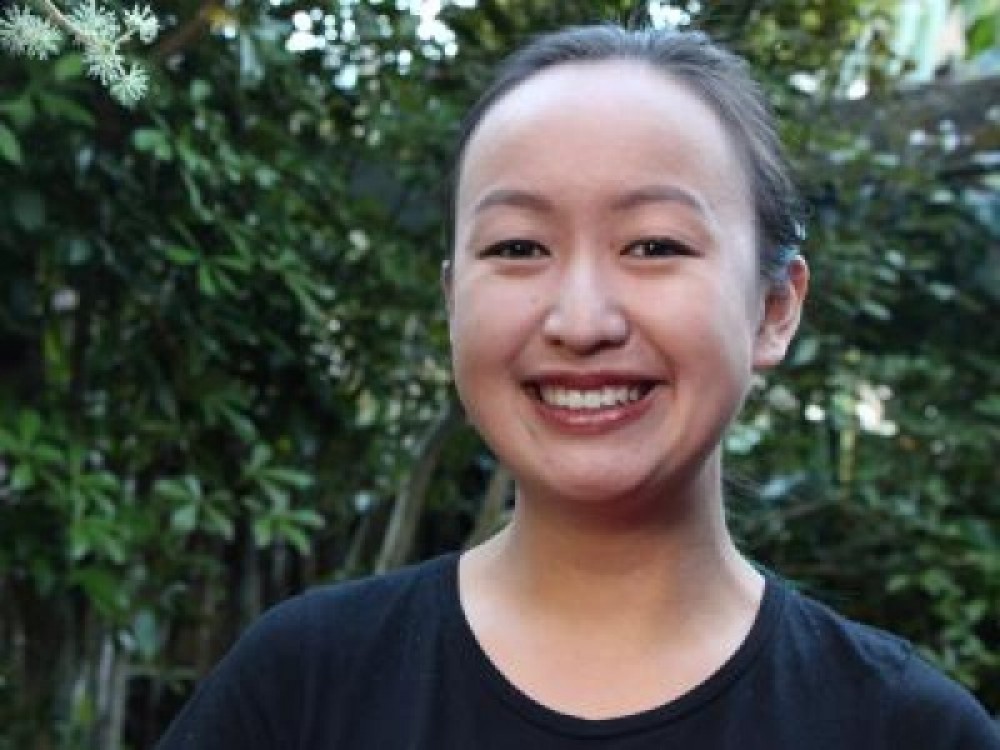“I’ve had periods in my life when I’ve felt depressed and anxious, as well as a life threatening situation in my early twenties which affected me mentally and emotionally.
“Reflecting back now, how I processed things during those times were not healthy and it wasn’t a good situation to be in,” the 23-year-old Chinese New Zealander explains.
Kirsten has since completed a Bachelor of Arts in Psychology (University of Auckland) with Honours (from Massey University); worked as a support worker with adults and teenagers dealing with mental health issues, and volunteered with Youthline.
Kirsten has since completed a Bachelor of Arts in Psychology (University of Auckland) with Honours (from Massey University); worked as a support worker with adults and teenagers dealing with mental health issues, and volunteered with Youthline.

Her combined experiences attracted Kirsten to the POD project, which she stumbled across on the Mental Health Foundation’s Facebook page.
“I liked the idea of moulding a project around an original idea that could bring about social change,” she says. “I believe everyone deserves the support and opportunity to be the best they can be, and that no one should experience stigma and rejection within their communities.”
“I liked the idea of moulding a project around an original idea that could bring about social change,” she says. “I believe everyone deserves the support and opportunity to be the best they can be, and that no one should experience stigma and rejection within their communities.”
Capoeira a model for social inclusion
Now, for the first time in her life she is flexing her creative muscle and using her knowledge of Capoeira – a Brazilian martial art she practices – to address mental health discrimination and social exclusion.
“Capoeira has a rich history, is of cultural significance, and is a fabulous model for holistic wellbeing and social inclusion,” Kirsten explains. “It is a non-judgemental community and I’ve found many international examples of Capoeira being used to create safe spaces for people.
Now, for the first time in her life she is flexing her creative muscle and using her knowledge of Capoeira – a Brazilian martial art she practices – to address mental health discrimination and social exclusion.
“Capoeira has a rich history, is of cultural significance, and is a fabulous model for holistic wellbeing and social inclusion,” Kirsten explains. “It is a non-judgemental community and I’ve found many international examples of Capoeira being used to create safe spaces for people.
“Research supports Capoeira as an innovative way to help young people deal with their anger and also to feel they are part of a group. I want to host an event as a way to introduce my ideas and messages, but I’m still working through all the details.”
Kirsten says the beauty of Capoeira is that it has no boundaries – it is open to everyone regardless of age, gender or ethnicity.
Kirsten says the beauty of Capoeira is that it has no boundaries – it is open to everyone regardless of age, gender or ethnicity.
One voice among many
Feeling alone and excluded has an impact on young people’s wellbeing and Kirsten sees herself as one voice among many others wanting to achieve the same thing – freeing young people from mental health discrimination.
“Some of the major sources of discrimination towards young people can come from their peers and their families,” she says.
“I want them to know about places they can feel supported; places where they can belong; places [like Capoeira groups] where discrimination is not acceptable, it is shut down. I want to take away their burden of being judged every day for their experience of mental distress.”
Feeling alone and excluded has an impact on young people’s wellbeing and Kirsten sees herself as one voice among many others wanting to achieve the same thing – freeing young people from mental health discrimination.
“Some of the major sources of discrimination towards young people can come from their peers and their families,” she says.
“I want them to know about places they can feel supported; places where they can belong; places [like Capoeira groups] where discrimination is not acceptable, it is shut down. I want to take away their burden of being judged every day for their experience of mental distress.”
That’s why she believes projects like POD are crucial
“POD has been a great learning process and reaffirms that I [and my fellow PODders] can help young people. On a personal level it’s also helping me explore who I am, what my values are and how I can support other people by sharing my own stories and experiences.”
“POD has been a great learning process and reaffirms that I [and my fellow PODders] can help young people. On a personal level it’s also helping me explore who I am, what my values are and how I can support other people by sharing my own stories and experiences.”
